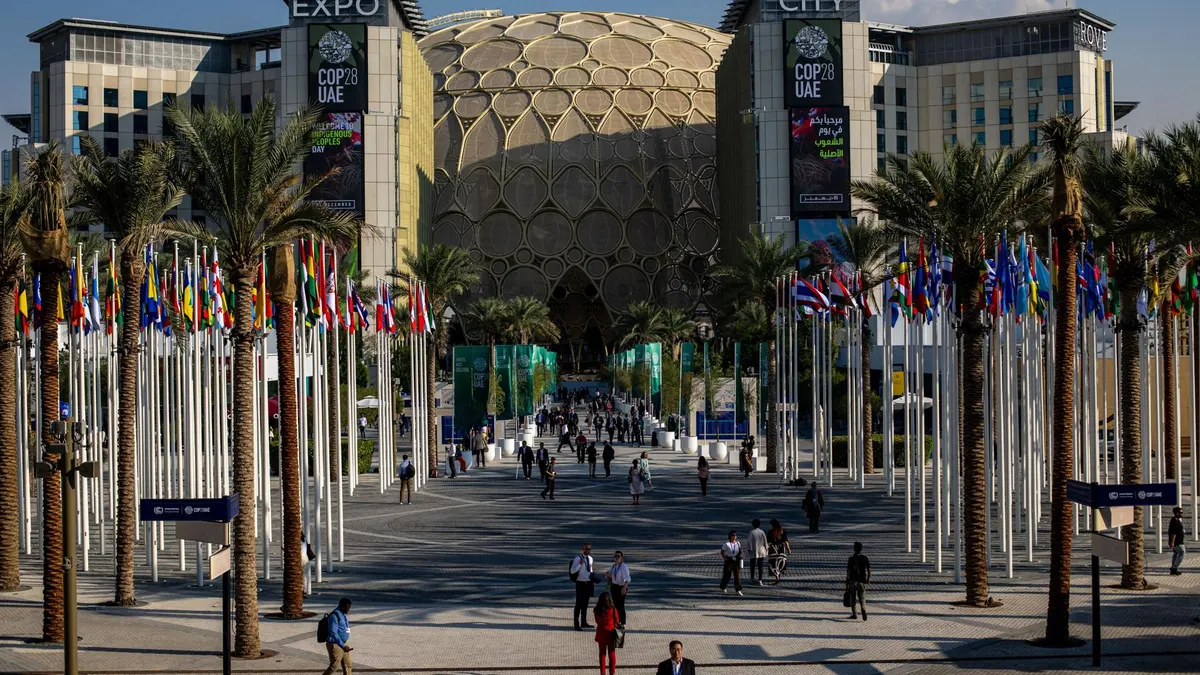
The UN climate summit which these days is being held in Dubai is now focusing on negotiate an agreement to stop the climate crisis and global warming, with the issue of phasing out fossil fuels as the main obstacle.
In this context, the executive secretary of the UN for Climate Change, Simon Stiell, has asked end ‘blocking tactics’ to secure ‘meaningful’ deal at COP28. “Strategic mines that explode for one explode for all,” he warned, in the first intervention of a day dedicated exclusively to negotiations.
Thus, he has asked the 198 parties to end the blockade, although he has been somewhat optimistic in ensuring that the options being traded “have been considerably reduced”, without giving more details. “Now we are here to debate two issues: how far does our ambition go regarding mitigation and whether we are willing to support this transition with the appropriate means of support,” he indicated.
In this regard, he has indicated that they seek “the highest levels of ambition” in both issues and has warned that if one of them is reduced, “the ability to achieve either of the two” is reduced. “Everything is on the table for a result“, he pointed out, pointing out that The parties have 24 hours for a “new chapter” to begin to fight this climate crisis.
Negotiations and pitfalls
This final stretch of the summit is dedicated exclusively to negotiations, after the organization decided to reserve the last two official days of the meeting for discuss the final resolution.
However, in the last few hours, the tone has hardened regarding the possibility of a “special and unprecedented” agreement coming out of Dubai, as assured by the president of COP28, Sultan al Jaber, at the beginning of the final week of deliberations. Al Jaber then asserted that his agreement proposals were receiving “positive responses” and predicted that at this COP28 a “result that is as ambitious as possible” will be achieved in its language relating to the abandonment of fossil fuels, one of the central issues of the climate debate. .
This Sunday, however, he acknowledged that “There are more areas of disagreement than agreement”, so he urged everyone to work “faster, harder” and be “flexible.” Al Jaber also announced a change of dynamic to seat ministers and heads of mission “under one roof” to “find meeting points and accelerate the negotiation” and asked the negotiators to come to that meeting “prepared with solutions, prepared to be flexible and accept compromises” and without prepared statements or predetermined positions.
This confirmed the uncertainty that weighs on whether the climate meeting will finally close with a clear message about the end – or the beginning of the end – of the fossil fuels, one of the central topics of the climate debate and, without a doubt, the one that has attracted the most attention at this summit in the United Arab Emirates. The European Union, the United States and many developing countries and island states maintain that a declaration in this regard is essential, while China, Russia, India or Saudi Arabia, quite the opposite.
Source: Lasexta
Ricardo is a renowned author and journalist, known for his exceptional writing on top-news stories. He currently works as a writer at the 247 News Agency, where he is known for his ability to deliver breaking news and insightful analysis on the most pressing issues of the day.












